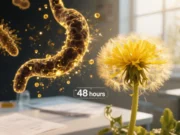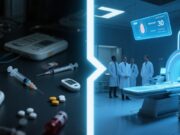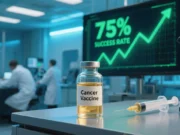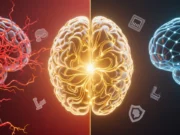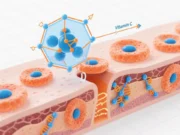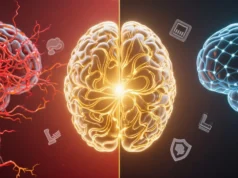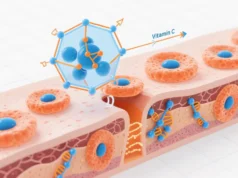The medical establishment spent decades telling you coffee was bad for you. Turns out they were dead wrong—and the truth is even better than you imagined.
Listen up, coffee lovers.
While your doctor was busy lecturing you about “cutting back on caffeine,” scientists at Queen Mary University of London just dropped a bombshell that’ll make you want to pour yourself another cup.
Your morning coffee isn’t just waking you up—it’s literally flipping an ancient cellular switch that could slow down aging.
And here’s the kicker: This mechanism has been sitting inside your cells for over 500 million years, just waiting for someone to figure out how to activate it.
The Discovery That Changes Everything
Dr. Charalampos Rallis and his team weren’t looking to vindicate your coffee habit. They were studying fission yeast (single-celled organisms that are shockingly similar to human cells) when they stumbled onto something remarkable.
Caffeine activates something called AMPK—think of it as your cells’ fuel gauge and emergency response system all rolled into one.
“When your cells are low on energy, AMPK kicks in to help them cope,” Dr. Rallis explains. “And our results show that caffeine helps flip that switch.”
But here’s where it gets interesting…
The Plot Twist Nobody Saw Coming
For years, scientists thought caffeine worked by directly targeting something called TOR (Target of Rapamycin)—a biological switch that controls when cells grow based on available food and energy.
They were wrong.
The new research, published in Microbial Cell, shows caffeine doesn’t touch TOR directly. Instead, it works through AMPK to control TOR indirectly.
Think of it like this: Instead of yanking the steering wheel, caffeine whispers in the driver’s ear.
Why This Matters for Your Health
When caffeine activates AMPK, three crucial things happen in your cells:
- Better DNA repair – Your cells get better at fixing damage before it becomes a problem
- Improved stress response – Cells handle oxidative stress and environmental toxins more effectively
- Optimized growth patterns – Cells know when to grow and when to focus on maintenance
Dr. John-Patrick Alao, who led the study, puts it bluntly: “These findings help explain why caffeine might be beneficial for health and longevity.”
The Metformin Connection Nobody’s Talking About
Here’s something that’ll make you sit up straight: AMPK is also the target of metformin—that diabetes drug researchers are quietly studying as a potential fountain-of-youth pill.
Big Pharma is spending millions trying to figure out how to harness AMPK for anti-aging drugs.
You’re already doing it with your morning coffee.
What the Research Actually Shows
The Queen Mary team used fission yeast because these tiny organisms age remarkably similar to human cells. When they dosed the yeast with caffeine:
- Cells lived longer
- DNA repair improved significantly
- Stress resistance increased dramatically
- The aging process literally slowed down
The research is so compelling that scientists are now exploring “how we might trigger these effects more directly—with diet, lifestyle, or new medicines.”
Translation: They’re trying to bottle what your coffee mug already delivers.
The Bigger Picture
This isn’t just about coffee. This discovery opens the door to understanding how simple dietary choices can activate ancient cellular pathways that evolution built into us over millions of years.
Your cells have been equipped with longevity switches all along. Science is just now figuring out how to flip them.
The Bottom Line
Every time you reach for that coffee mug, you’re not just getting a caffeine buzz. You’re:
- Activating a 500-million-year-old cellular energy system
- Improving your cells’ ability to repair DNA damage
- Enhancing your natural stress response mechanisms
- Potentially slowing down the aging process at the cellular level
While Big Pharma scrambles to create expensive AMPK-targeting drugs, you’re already ahead of the game.
So the next time someone tells you to “cut back on coffee,” you can tell them the science says otherwise. Your cells are literally thanking you for every sip.
Just make sure it’s quality coffee. Your ancient cellular machinery deserves the good stuff.
Sources:

